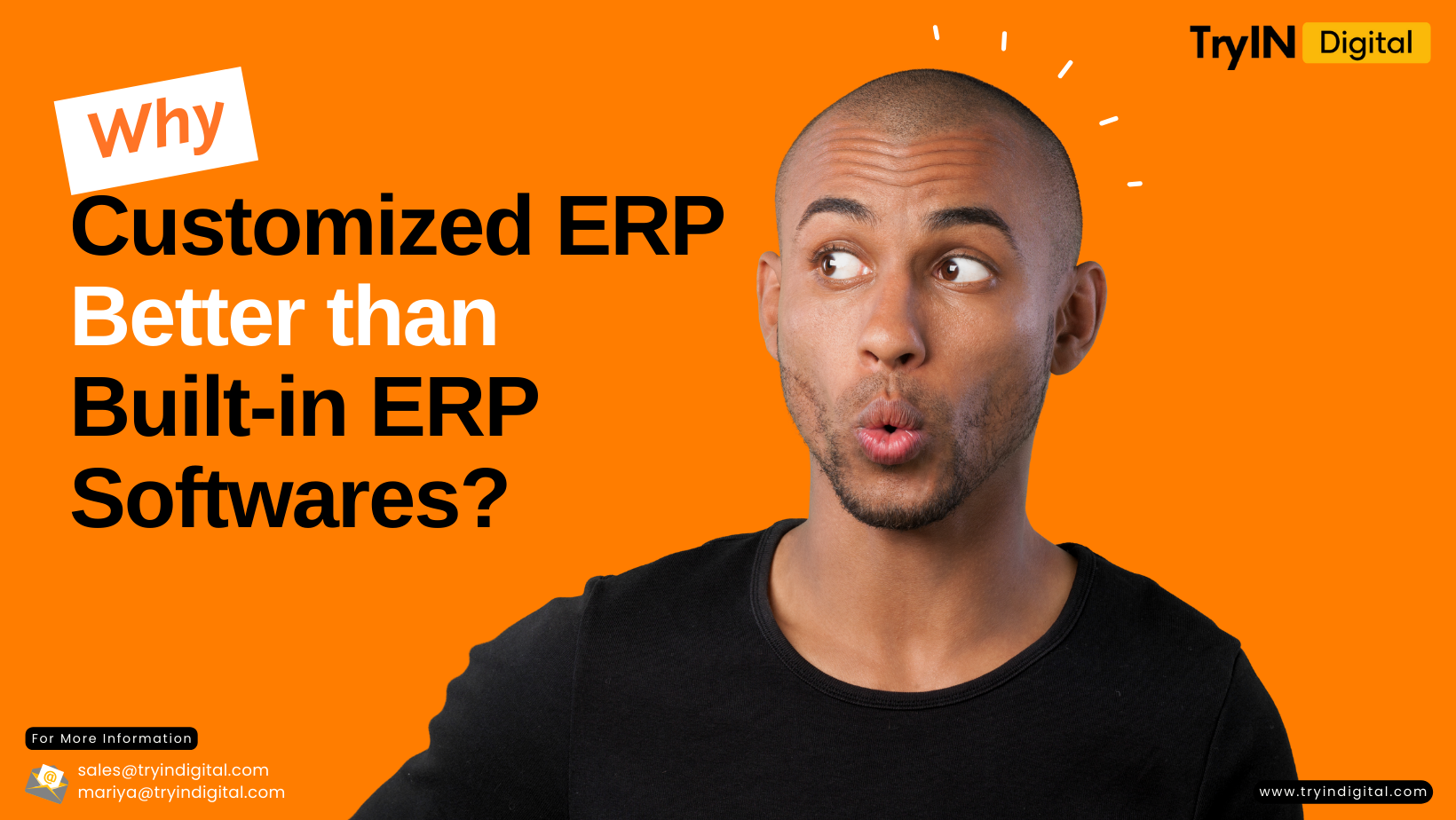
Introduction
Customized ERP (Enterprise Resource Planning) solutions are built to meet the specific needs and requirements of a particular business or industry, whereas off-the-shelf or built-in ERP software is a standard solution that is designed to address common business processes across various industries. Both approaches have their advantages, and the choice between a customized ERP and an off-the-shelf solution depends on the unique characteristics and goals of the business. Below are reasons why a customized ERP might be considered better in certain scenarios, along with associated benefits:
Developed for Specific Business Processes:
- Reason: Customized ERP systems are designed to align seamlessly with the unique workflows and processes of a business.
- Benefits: This ensures that the ERP system addresses specific business challenges, enhances operational efficiency, and supports industry-specific requirements.
Improved User Adoption:
- Reason: Customization allows for a user-friendly interface and workflows that align with how employees are accustomed to working.
- Benefits: Higher user adoption rates, reduced training time, and increased overall productivity among employees.
Integration with Existing Systems:
- Reason: Customized ERP systems can be seamlessly integrated with existing software and systems.
- Benefits: Avoids data silos and ensures smooth information flow across various departments, leading to a more connected and efficient organization.
Enhanced Flexibility and Scalability:
- Reason: Customized ERP solutions are more flexible and can adapt to changes in business processes or growth.
- Benefits: Businesses can scale their operations without major disruptions, and the ERP system can evolve alongside the organization’s changing needs.
Specific Reporting and Analytics:
- Reason: Customized solutions can include tailored reporting and analytics features.
- Benefits: Provides decision-makers with the specific insights they need, leading to more informed strategic decisions.
Cost-Effective in the Long Run:
- Reason: While the initial development cost may be higher, the long-term costs can be lower as the system is optimized for the business’s exact requirements.
- Benefits: Reduces the need for expensive modifications or workarounds often required with off-the-shelf solutions that may not fully meet specific needs.
Competitive Advantage:
- Reason: A customized ERP system can offer a competitive edge by enabling unique functionalities and features that set the business apart.
- Benefits: Enhances the company’s ability to innovate and respond to market changes more effectively than competitors relying on generic ERP solutions.
Compliance and Regulatory Requirements:
- Reason: Customized ERP systems can be designed to meet industry-specific compliance and regulatory standards.
- Benefits: Helps the organization adhere to legal requirements, reducing the risk of penalties or legal issues.
Implementation Timelines:
- Reason: Customization allows for a more focused implementation, addressing only the features and functionalities required by the business.
- Benefits: Shorter implementation timelines and quicker realization of the benefits of the ERP system.
Conclusion
It’s important to note that while a customized ERP system offers numerous benefits, it also requires careful planning, expertise, and ongoing support to ensure successful implementation and continued effectiveness. For some businesses, especially smaller ones with straightforward needs, off-the-shelf ERP solutions may provide a quicker and more cost-effective option. The decision between customized and off-the-shelf ERP depends on factors such as budget, business complexity, and long-term strategic goals. Visits www.tryindigital.com